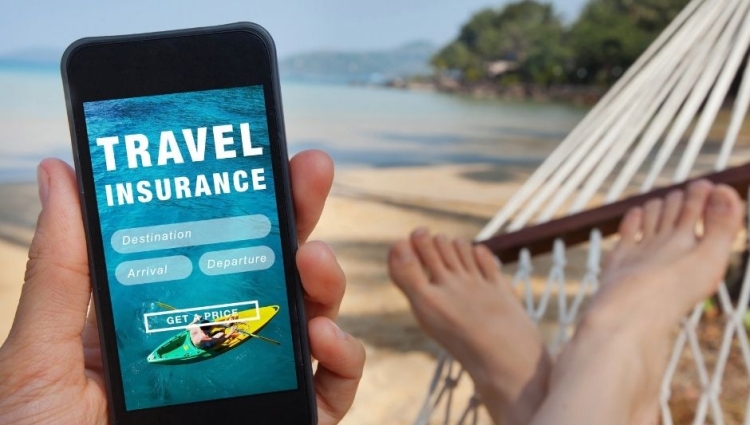Personally, I believe it would be extremely foolish not to have some form of travel insurance
particularly if flying internationally. Individuals frequently make the mistake of believing that their local insurance policies will cover any losses, only to be surprised when it comes time to make a claim. Additionally, if you have the proper insurance, your trip will be worry-free.
When you book your trip, your travel agent should always offer you insurance. If not, inquire, as you will be responsible for any errors.
Is it a Cost-Effective Policy or Not?
When a travel insurance policy is issued, several allocations are made. The premium, agent commissions, and administrative costs all contribute to profit, with the remainder going toward insurance coverage. As you can see, if the travel insurance policy is inexpensive, something will be sacrificed, and you can bet it will be the level of coverage.
When purchasing a standard travel insurance policy, that is, when you complete a form and send it to the insurance company along with your remittance, there are numerous costs involved. A better option would be to purchase a wholesale policy (which travel agents do sell), which has significantly lower administration costs, allowing for more money to be spent on actual coverage.
Certain tour operators and agents offer a "in-house" travel insurance policy that frequently covers only their own cancellation fees. It may be less expensive, but it will provide you with limited travel insurance coverage.
Another way to save money, depending on the extent of your travel, is to purchase an annual travel insurance policy. This is bulk purchasing and is almost certainly less expensive than the one-time trip policy.
Primary or Secondary Travel Insurance Cover?
These two types of cover dictate how payouts are made. Primary travel insurance coverage means that the company will "Pay first," meaning that the claimant will receive payment first. Due to the secondary travel insurance coverage, they will pay only after you have exhausted all other available insurance coverage. As you can see, the primary cover is significantly superior to the secondary cover.
Which Type of Insurance Will You Require?
It's reasonable to say that the two primary risks covered by the majority of travel insurance policies are the cost of changing your travel plans and any medical care or emergency assistance required while you're away.
The majority of travel insurance policies include a few hundred dollars for baggage/loss/damage/delay, as well as loss of travel documents and other small amounts for flight delay or interruption. Some will also cover the cost of someone flying out to you if you are hospitalised for more than two or three days.
Another significant cost, which I must admit I had not considered previously, is supplier bankruptcy. Frequently, the travel insurance provider is unable to have the policy cover their own bankruptcy. This is another reason to obtain a separate policy from the company that arranges your travel.
Although most travel insurance policies include a substantial amount of air death insurance, it is a relatively low-cost item, costing about 25 cents for a $100,000 cover. This, I suppose, demonstrates the safety of air travel.
Certain travel insurance policies will also cover risks associated with car rentals, which may be critical to consider given the high cost of car rental insurance policies.
Coverage for Trip Cancellation/Change
To help you understand the potential costs associated with changing or cancelling your trip, keep in mind that if you purchased an unrestricted first class ticket, there may be no additional costs associated with changing the ticket, as this is typically included in the purchase price.
It may seem strange, but the cheapest ticket carries the greatest risk of cancellation or change. It can cost significantly more than the original purchase price of the ticket to change the cheap fare to return home on a different flight.
You should be aware that when some travel insurance policies state that they will cover "your total trip cost," you may believe that they will cover all expenses, but this is not always the case. Assume your discounted fare is $590 and your package is actually $895, and you need to change. You may discover that the return trip is more expensive than the entire package. Perhaps you'll have to pay an additional $1120 for a one-way return ticket without advanced purchase.
This happened to me a few years ago when I was forced to return home for my father's funeral. Due to time constraints, I was forced to purchase an undiscounted ticket. After feeling ill all day, I succumbed to a middle ear infection at the airport. As a result of the vomiting and the different air pressures associated with flying, I was unable to board an aircraft. However, because I had purchased a full fare, there were complications in rebooking my flight for the following morning. This demonstrates that one cannot always control one's circumstances.
More restrictive travel insurance policies may exclude events deemed "out of your control," which may include work-related issues. Consider the following scenario: you are about to leave work and are informed that there is an issue that needs to be resolved and that your departure must be different. There is a strong possibility that this type of travel insurance will not pay out due to this reason.
Medical Assistance and Emergencies
Certain individuals believe that their home medical insurance policy will cover them regardless of where they are in the world. They may discover that it does not cover them at all, or that the deductions are significantly higher, or that their medical expenses are covered but not related transportation expenses.
You may be on a cruise and require medical assistance from the ship's physician. As with any other doctor, there is a good chance that their services will be charged. You may need to be flown home on a stretcher, which will require the closure of nine seats. Can you imagine the cost of that? You should have travel insurance that covers you for at least $10,000 or more in case of an emergency. Consider the following scenario: you are in a remote area and suffer a leg injury, necessitating helicopter evacuation. This is the essence of good travel insurance.
In summary
Consider the worst-case scenario for a travel mishap and decide whether you require travel insurance. This could mean cancelling the entire trip and incurring cancellation costs, or it could mean an emergency medical mishap necessitating medevac and local care. I realise these are frightening thoughts, but if you are unable to self-insure, an investment of around $100 in travel insurance will provide you with peace of mind and one less worry.





 And then Add to Home Screen.
And then Add to Home Screen.